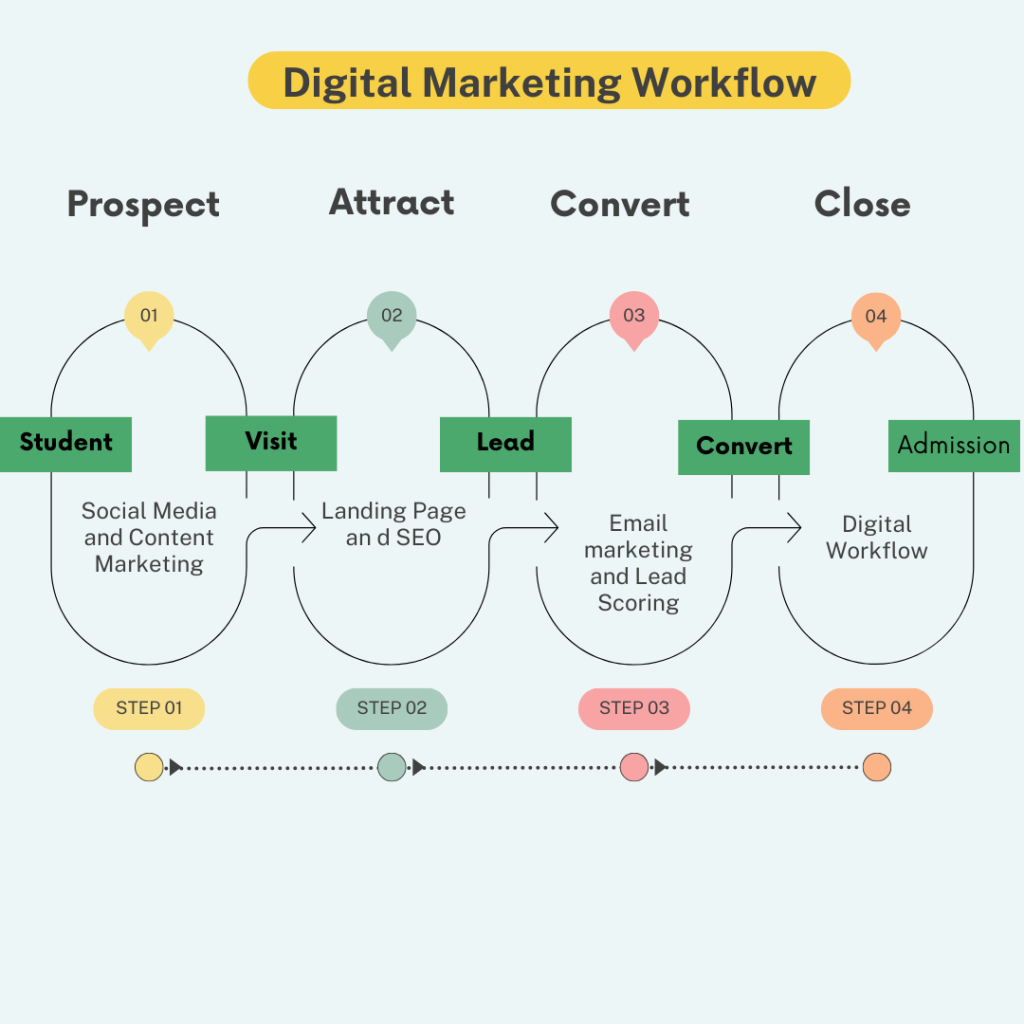Why Do Education Institutes Need Digital Marketing?
The higher education landscape has been profoundly transformed by digital marketing, offering a multitude of advantages and avenues for enhancement. Over the years, the scope of digital marketing has expanded significantly, extending beyond conventional realms such as paid advertising and SEO.
The advent of advanced technologies has empowered students to meticulously assess the performance of universities or institutes, considering factors like infrastructure and placement, utilizing various tools. In the initial phase, it has become imperative for institutes and universities to adopt a more proactive stance on the digital frontier to effectively attract students.
Digital Marketing for Higher Education
The scope of digital marketing for universities is vast and encompasses various strategies and channels to enhance visibility, engagement, and recruitment. The journey begins with social media marketing, progresses through Google Ads, and advances to lead scoring, culminating in successful admissions. Social media platforms and digital content play pivotal roles in this process, contributing significantly to its effectiveness.

As per Inside HigherEd report 50% of younger applicants use 5+ more social sites for college research. It spans a range of online channels and strategies that collectively contribute to building a strong online presence, attracting prospective students, and fostering ongoing engagement with various stakeholders.

Top Five Benefits of Digital Marketing?
- Increased Reach and Visibility: Digital marketing platforms enable universities and educational institutions to reach a global audience. Social media, search engine optimization (SEO), and online advertising enhance visibility, attracting diverse students from various geographical locations.
- Targeted Marketing Campaigns: Digital marketing allows for precise targeting of specific demographics, ensuring that promotional efforts are directed at the most relevant audience. This targeted approach helps in attracting students with specific interests, backgrounds, and educational goals.
- Data-driven decision-making: Digital marketing tools provide valuable insights into user behavior, allowing higher education institutions to analyze data and make informed decisions. This data-driven approach helps in optimizing marketing strategies and tailoring offerings to meet the evolving needs of students.
- Cost-Effective Outreach: Compared to traditional marketing methods, digital marketing offers cost-effective solutions. Institutions can allocate budgets more efficiently, reaching a larger audience without the constraints of traditional advertising costs.
- Building Brand Reputation: Consistent and positive digital marketing efforts contribute to building a strong brand reputation for educational institutions. This reputation, conveyed through online channels, influences the decision-making process of prospective students.
In conclusion, digital marketing is a powerful tool that continues to reshape and enhance the higher education sector by expanding reach, optimizing communication, and adapting to the evolving needs of students in the digital age.




